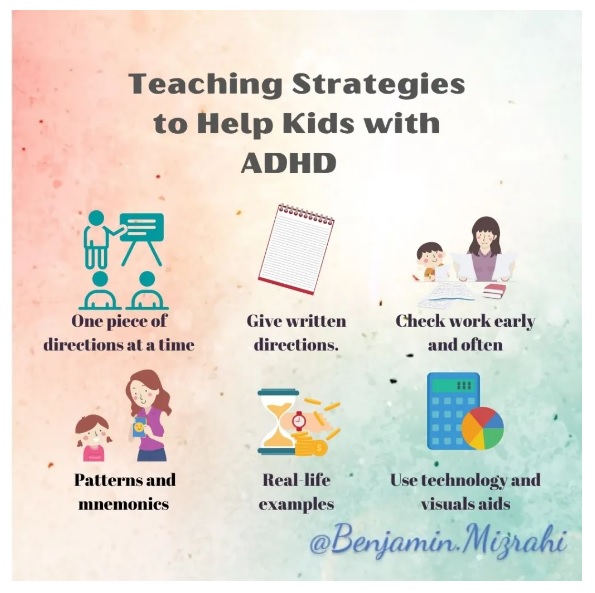5 Simple Strategies To Tackle Students With ADHD In The Classroom
31st August 2024

Research reveals that approximately 9% of the children in the United States aged 13-18 have ADHD.
Parents and teachers may help kids thrive in school by using methods for ADHD. The symptoms of attention-deficit/hyperactivity disorder (ADHD) include hyperactivity, difficulty controlling impulses, and difficulty paying attention. Though it often manifests in childhood, a diagnosis may not come until puberty or age. In the classroom, children and teenagers with ADHD have special needs. Here are some strategies for students with ADHD that educators and parents may implement to support their children's academic success.
5 Strategies To Help ADHD Students Succeed In School

Here are some of the strategies parents and educators can use to help students succeed in school:
1. Keep Consistent Expectations
The expectations and rules for the class should be reviewed frequently and revised as needed. The classroom should have visible rules displayed for students to see.
To make sure they grasp rules, expectations, or other instructions, it's usually helpful to have a youngster repeat them. Instructors should remember that a youngster could have heard what was stated but not comprehended what it meant.
Before you move to the topic, can we ask you a quick question? Do you follow us on Social Media? If not, then you’re missing out on a lot of informative content. We regularly share upgraded educational content, tips, feedback, and more. Check us out by clicking the profiles here - Facebook / Twitter / LinkedIn / Pinterest / Instagram / YouTube
2. Offer Frequent Feedback
Continually providing youngsters with brief comments on their performance is another effective ADHD tactic. Feedback regarding their behavior that is regular and instantaneous is beneficial for children, ADHD or not.
Repercussions for undesired behavior should be applied quickly when necessary. Give praise for positive behavior right away. It is advisable to overlook unpleasant conduct that is mild and non-disruptive.
3. Reward Good Behaviour
When trying to inspire a pupil, rewards, and incentives should always come before punishment. Frequently switch up the prizes to avoid monotony. Recess cannot be taken away as a punishment for misbehaving.
Physical activity helps kids with ADHD, and they might be able to concentrate better after going outside or to gym class. Encouraging behavior over punishment will guarantee that school remains a good environment for children with ADHD.
4. Give Them A Break
Regular exercise and breaks might be helpful tactics for children with ADHD. Providing kids with ADHD with numerous opportunities to get up and move around may be quite beneficial since they often struggle with sitting still for extended periods.
They can go errands to the office or another area of the school, pick up or distribute papers or classroom supplies, or erase the board to give them a physical rest. Allowing them to go grab a sip of water from the water fountain, for example, can provide them with a little period of activity.
5. Use Flexible Rules
ADHD students frequently exhibit restlessness. While it may be the norm for children to sit in their seats during class, allowing a child with ADHD to stand up might help them stay on target.
Holding a little ‘Koosh Ball’ or something tactile to manipulate, like Silly Putty, helps kids who fidget to gain some stimulation without disturbing the lesson. While some studies have suggested that chewing gum may help certain kids focus better, the findings have not been definitive. In addition, a lot of schools forbid pupils from chewing gum.
Bottom Line
The three components of a successful school plan for an ADHD kid are academic education, behavioral interventions, and classroom adjustments. Regular use of these tactics and pursuing ADHD Courses Online will not only help the entire classroom environment, but it may also make a world of difference for a child with ADHD.
We believe education should be accessible to everyone. That's why we don't charge for our blogs. Find the right course that will help you in your career with us, contact us at 91-6292150868. You can mail us at act@asiancollegeofteachers.com

